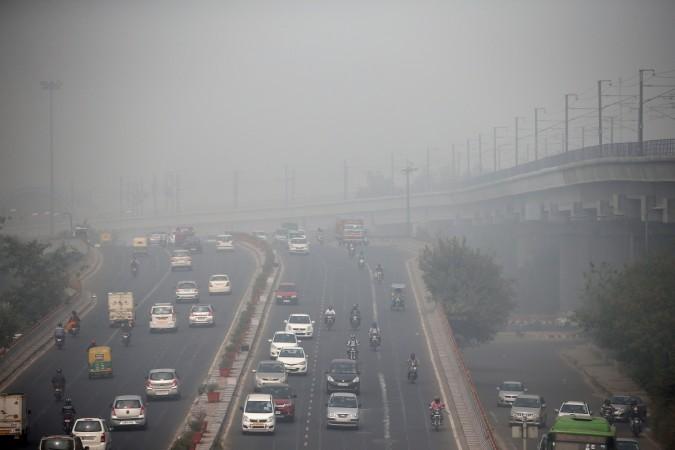
Air pollution caused the premature death of around 80,665 adults above 30 years of age in Delhi and Mumbai in 2015, a new study by the Indian Institute of Technology, Bombay, has revealed. The number has seen a two-fold jump from 1995.
Economically, air pollution had cost both cities around 0.71 percent of India's gross domestic product, which is approximately Rs 70,000 crores, in 2015. The toll on health and productivity due to exposure to air pollution leading to respiratory ailments had also increased. The calculation was based on the data on PM 10 (fine particulate matter measuring 10 microns), population and death rates, the Times of India reported.
The number of premature deaths in Delhi was higher than Mumbai due to its increased levels of PM10 from vehicle exhaust, construction dust and other industrial processes. The death toll increased to 48,651 in 2015 from 19,716 in 1995 as compared to Mumbai, where casualties from pollution increased from 19,291 in 1995 to 32,014 in 2015.
Air pollution resulted in 23 million cases of restricted activity days (RAD) — either less productive days or days off work for individuals — in Mumbai in 2015. People with respiratory ailments accounted for 64,037 emergency room visits in 2015 due to the worsening quality of air, a 35.4 percent increase since 1995. Around 29 million cases of RAD with 0.12 million emergency room visits were recorded in Delhi in 2015.
Kamal Jyoti Maji, the lead author of the study, said the effect of air pollution on health and productivity was evident since the increase in cases and cost after 2005 was similar to the overall trend in pollution, TOI reported. The study also found that the economic cost of PM10 exposure increased by 60 percent in Mumbai and 135 percent in Delhi from 1995 to 2015.
The "disability adjusted life years" (DALY) — a measure of health and longevity representing years lost due to various illnesses — doubled in the national capital between 1995 and 2015 from 0.34 million to 0.75 million DALY due to air pollution. The number increased from 0.34 million to 0.51million DALY in Mumbai in the same time period.
Researchers said the estimates may be an undercount of actual costs, mortality and morbidity because the study considered only the effect of PM10 and to a lesser degree, the effect of PM2.5.
The study was published in the Environmental Science and Pollution Research Journal and is authored by research scholar Maji, IIT Bombay professor Anil Dikshit and Ashok Deshpande from USA's Berkeley Initiative in Soft Computing, the daily reported.

















